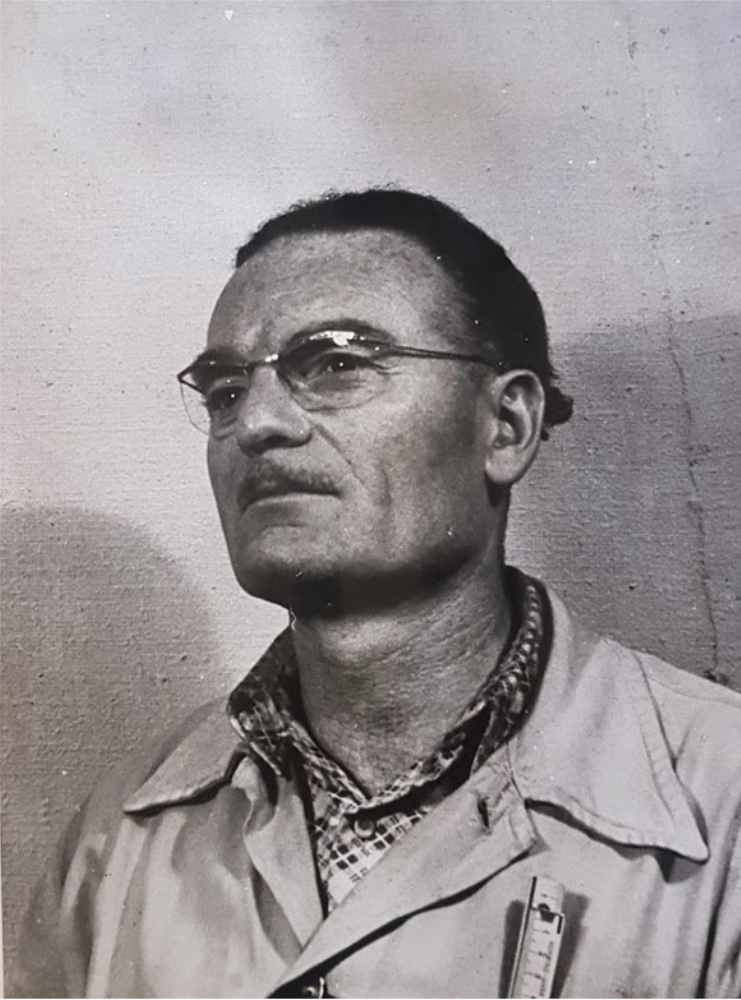CARICATURE FROM THE LABOUR SERVICE CAMP / Zsuzsa Solt
My father did his labour service in Bor, and he came back on 1 February 1945. There was a graphic artist in Bor, Karcsi Sándor, who later worked as a caricaturist for Ludas Matyi magazine for a long time. He made this drawing about my father on a piece of wrapping paper.
I was born into a mixed family. Only my Dad was Jewish, my mother was not. They married in 1935, but not everybody in the two families was happy about this.
My father escaped from labour service in Bor because he was a carpenter by trade, and he was ordered to make a wardrobe for one of the officers. He hid in the wardrobe with two other people. As the wardrobe was taken to the officer’s lodgings, they went through the woods, where my father and his companions escaped. My father joined the Yugoslavian partisans and served in Tito’s partisan detachment. We still have his Yugoslavian partisan certificate. There is also a document which proves that he was an antifascist and took part in the fight against fascism. He never told us about these fights.
My father had four siblings. One of them was a prisoner of war in Russia, while the two youngest, the girls, were in an Austrian concentration camp. The youngest sister often told us how they had come home. My father went to bring them home. He started out on foot because he had heard that those who were returned to Hungary from the camp were now in Sopron. Somewhere he got a handcart. If somebody gave him a ride on his wagon, he got on with the handcart, if not, he kept walking. When he found his sisters, both of whom weighed about 30 kilos and suffered from typhoid fever, he laid them on the cart. They got on trains and on wagons until they finally arrived home. My father took the girls to their mother, and they often recounted the scene as he stood in the doorway and called out to his mother, “Guess what Bandi has brought you!” He brought back his sisters.
My father had a hard life because his parents had divorced when he was still a child, and he stayed with his father, also a carpenter, who did not look after him. So my father slept on the workbench in the carpenter’s shop for a long time, for years. He was only eight when the plane cut off two of his fingers. Then they put him on a wagon and told the driver to take him to hospital. When we were children, we always fought because none of us wanted to hold his left hand.



